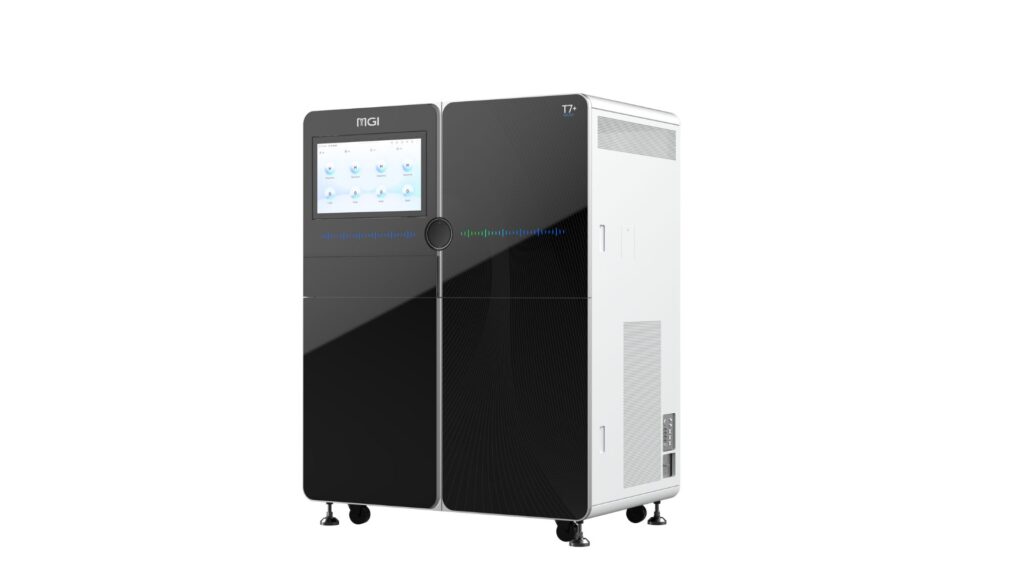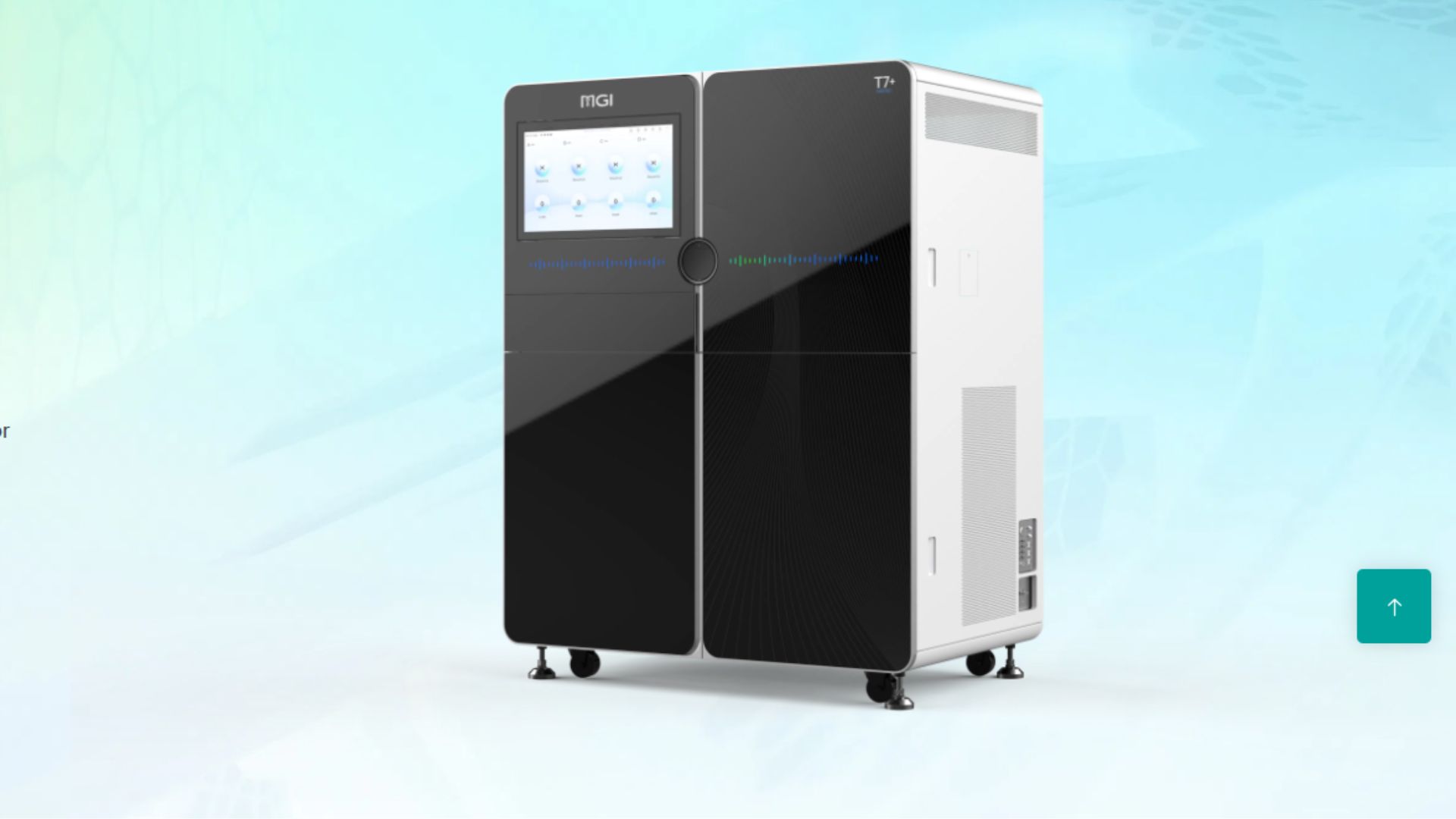
Chinese biotech firm MGI Tech launched its most advanced DNA sequencer, the DNBSEQ-T7+, capable of producing over 14 terabases of genomic data per day—enough to sequence 144 human genomes in 24 hours, or one every 10 minutes (MGI Tech). This more than doubles the 7-terabase daily output of the original T7 model from 2018. The compact system occupies just 1 m² and supports 1–4 flow cells per run with configurable PE150 and PE100 read lengths.
Integration and Automation
Dubbed a “data mining machine,” the T7+ combines 7-in-1 hardware with smartphone-style software and modular consumables, enabling end-to-end automation from DNA preparation through bioinformatics analysis. “The T7+ is more than just a sequencer—it is a bridge between scientific discovery and real-world health outcomes,” said Duncan Yu, President of MGI Tech.
Positioning Against Market Leaders
The announcement arrives amid fierce competition with Illumina, which holds over 90% market share in clinical genomics testing (South China Morning Post). Despite US sanctions on Chinese biotech, BGI Group CEO Yin Ye asserted that MGI’s DNBSEQ technology offers superior time, quality, and cost value compared to rival platforms.
Technology and Market Context
MGI’s DNBSEQ platform builds on patents acquired from Complete Genomics in 2013, using DNA nanoballs on patterned array chips to improve accuracy and reduce error rates. Early adopters are deploying T7+ for population-scale studies, often pairing it with long-read platforms for enhanced detection of structural variants in oncology and rare disease research. International shipments are set to begin in late 2025.
Analysts forecast the high-throughput sequencing market will grow from $5 billion in 2025 to $12 billion by 2033, driven by declining costs and expanding precision medicine applications in oncology, rare diseases, and population genomics.











